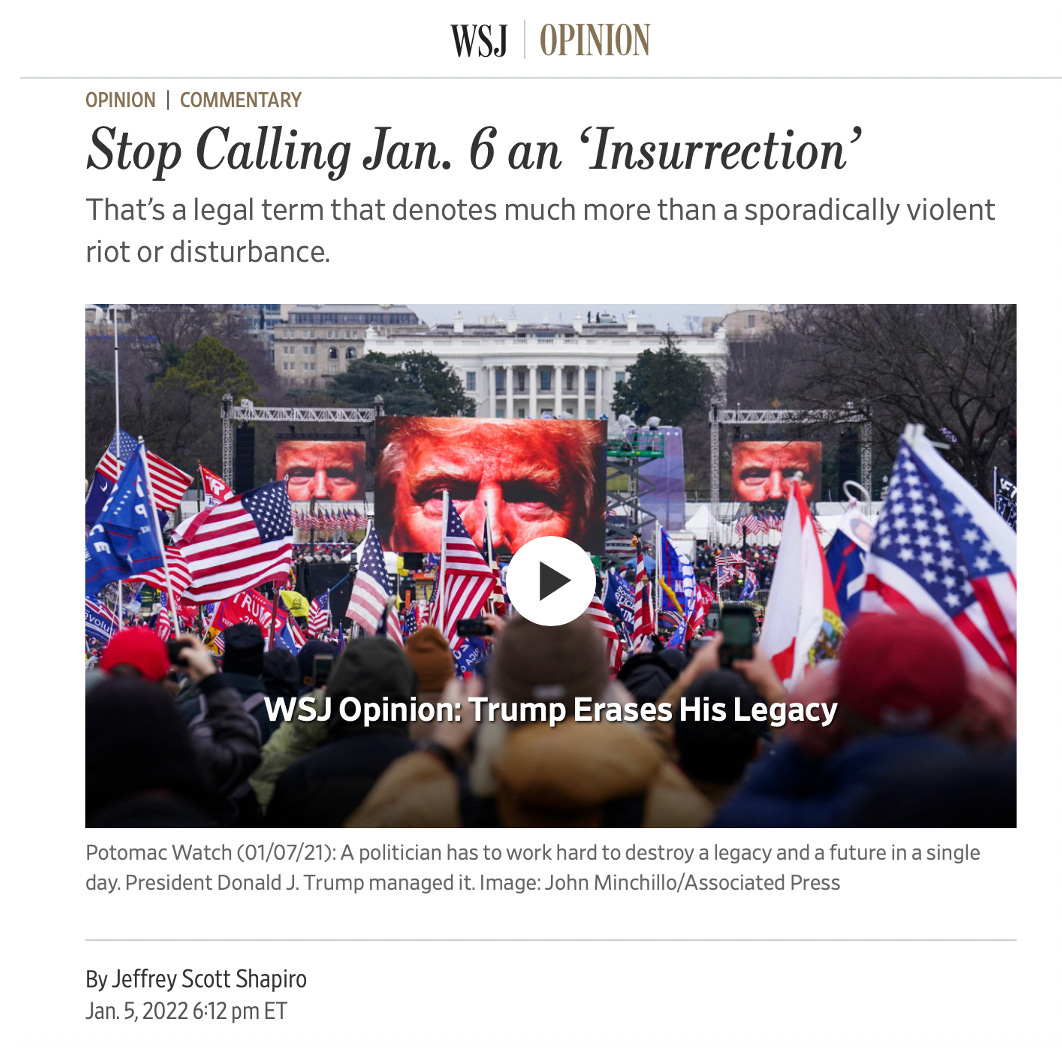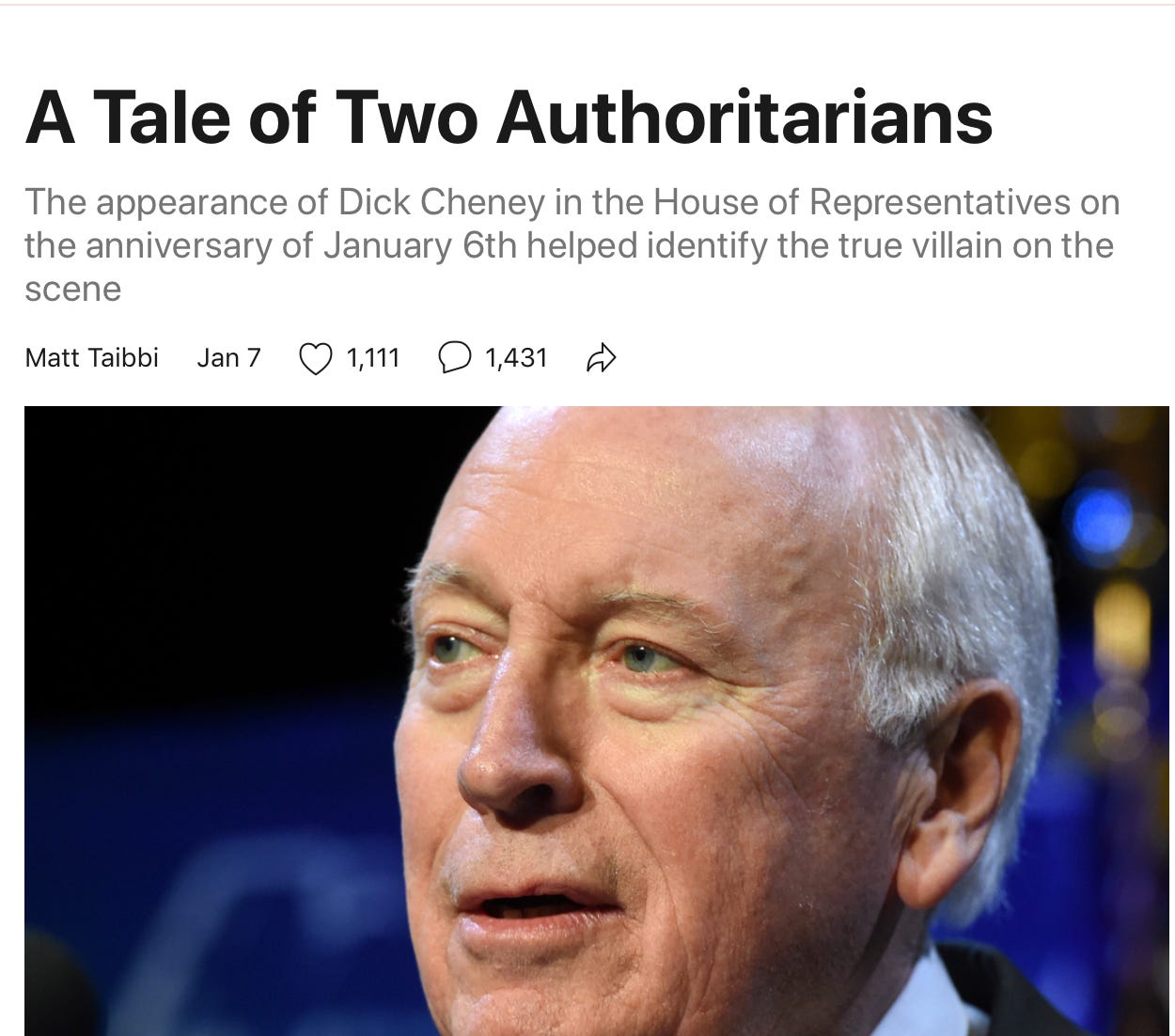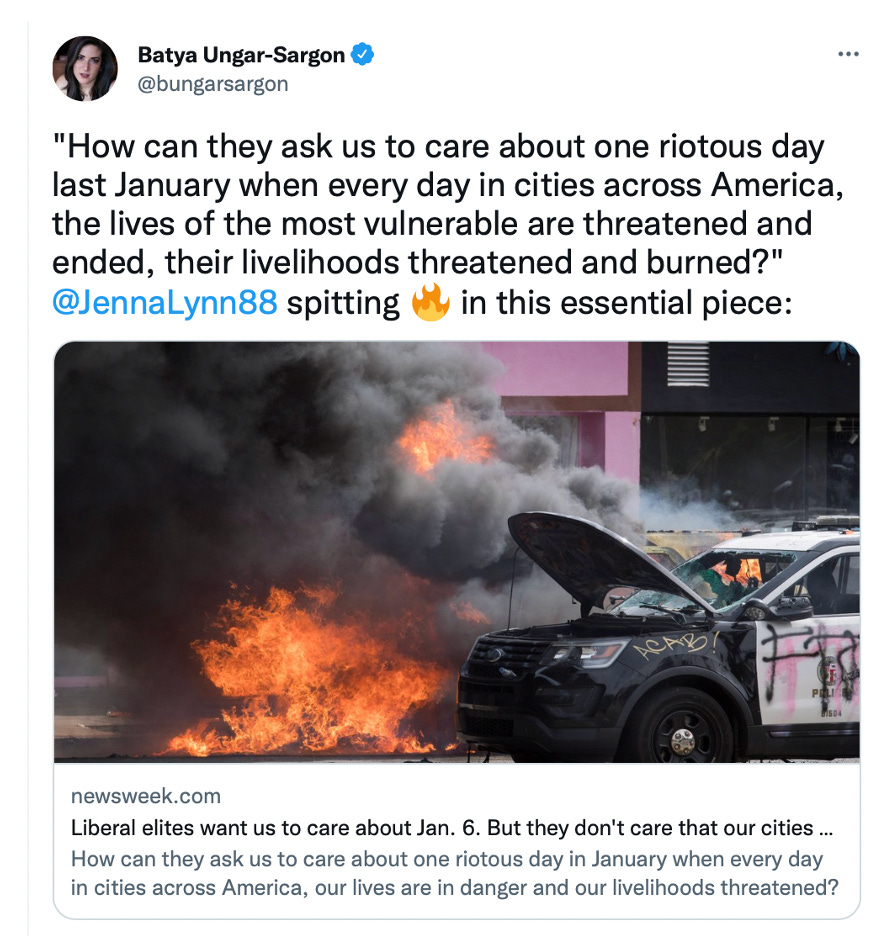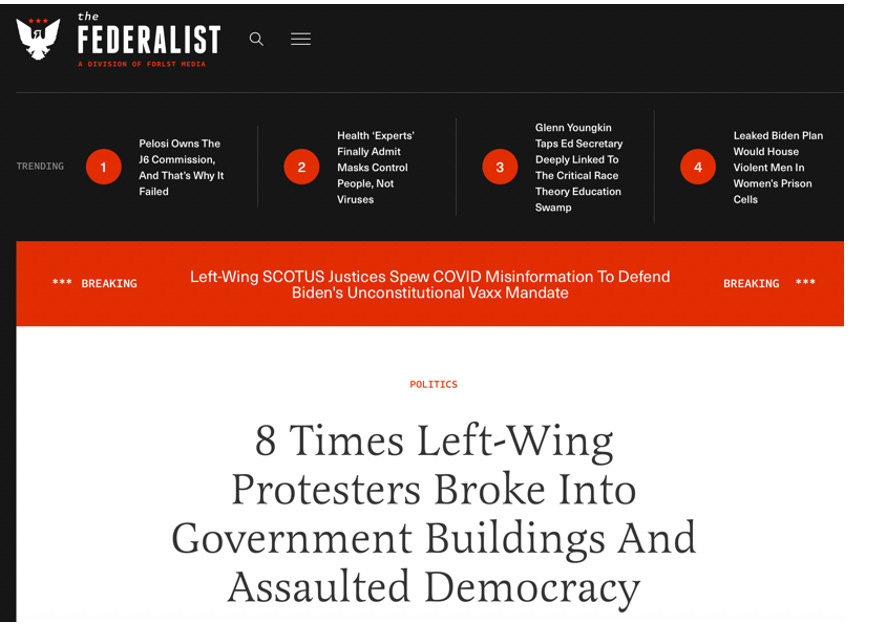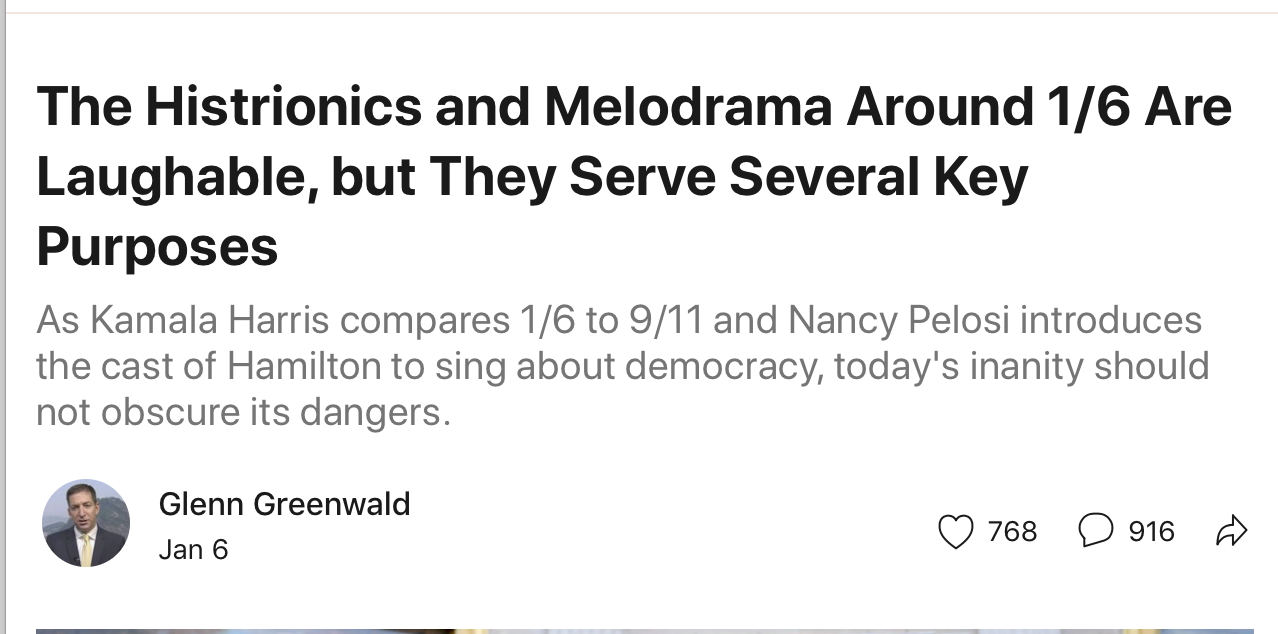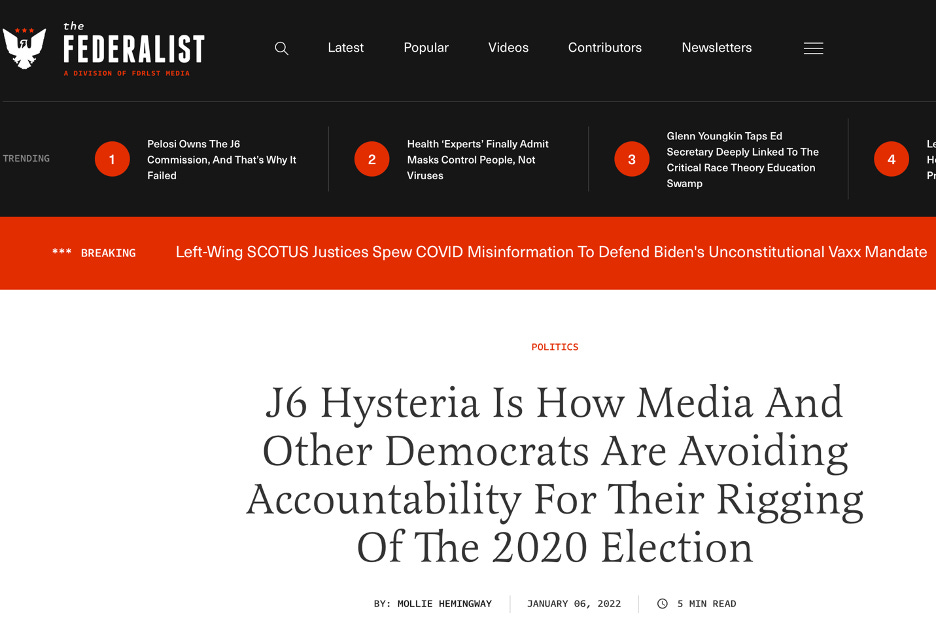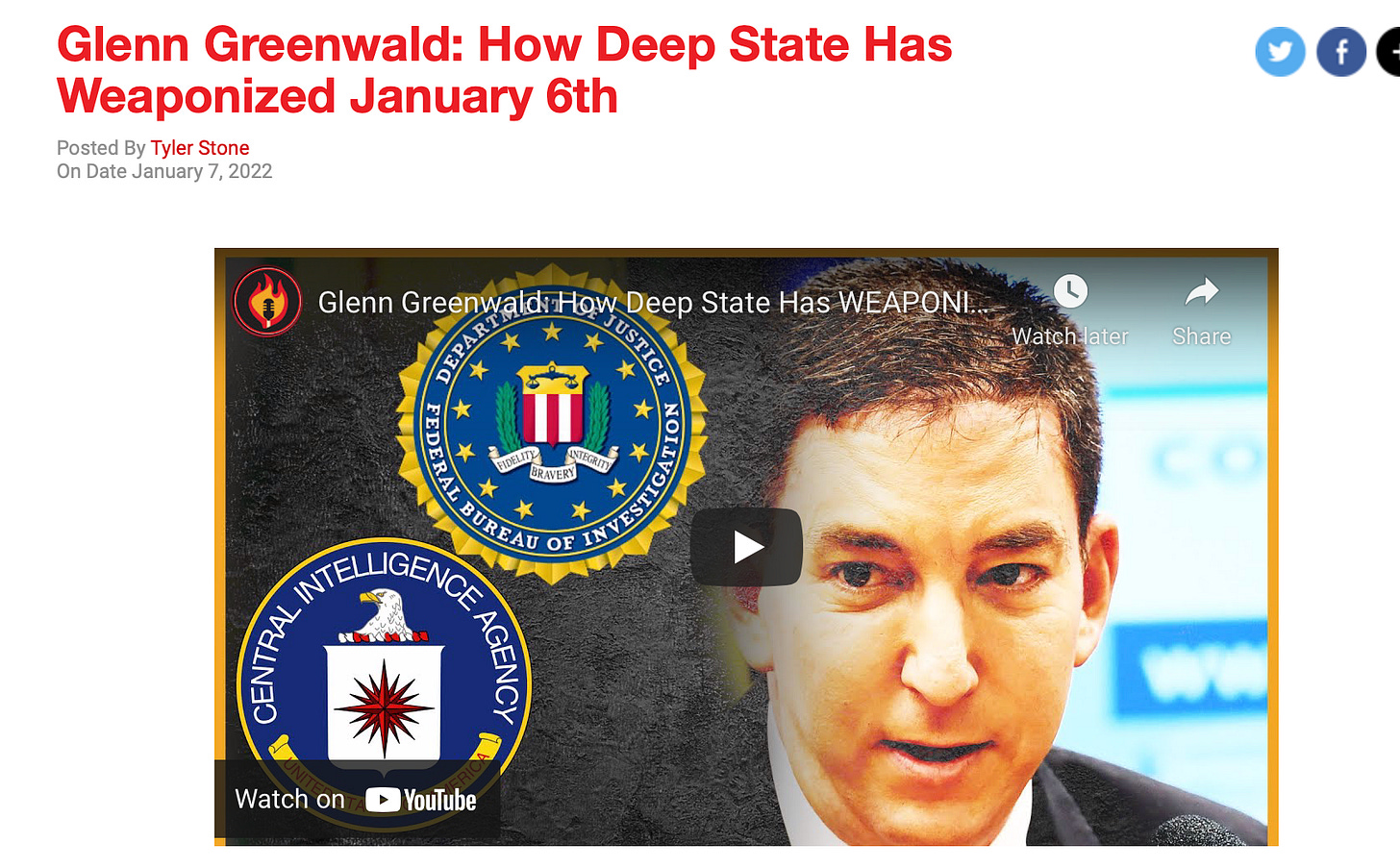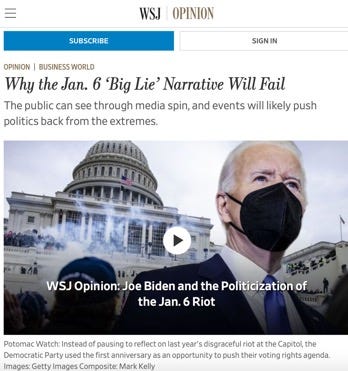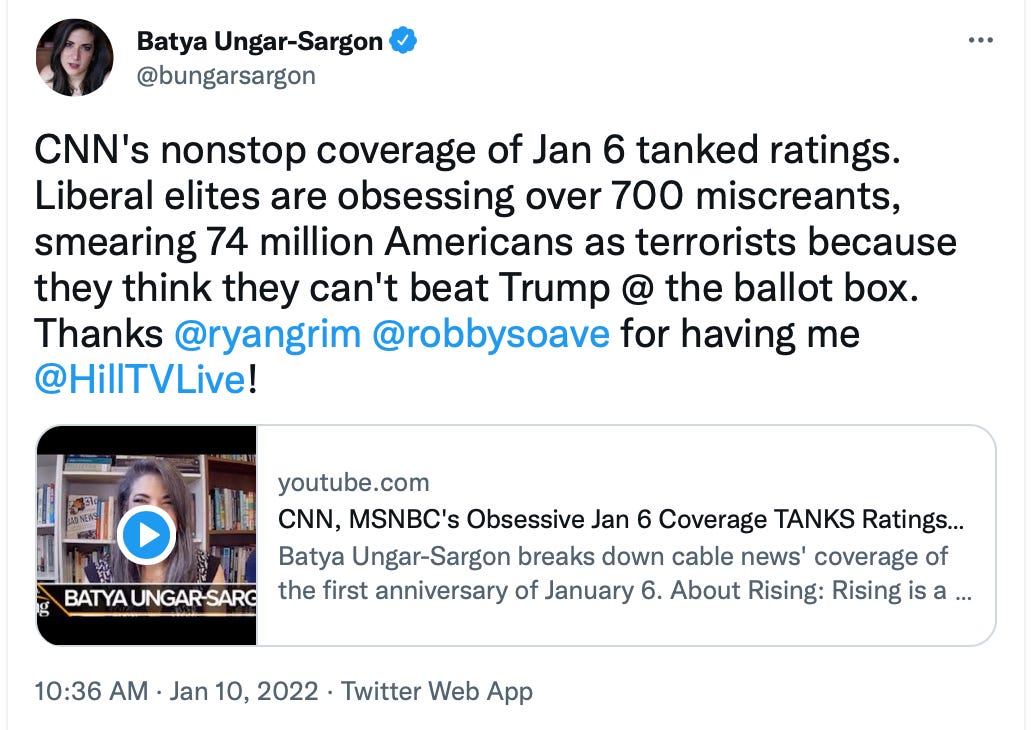Little Big Lies
The eight delicious flavors of January 6th revisionism
Anniversaries of significant historical events are meant to be a time to come together to reflect on the meaning of what happened, and consider the lessons for today. The first anniversary of January 6th felt that way for many of us. But others questioned why we should remember it at all, part of a large-scale revisionist effort to deny and obscure the meaning of January 6th.
To recap, here are some facts about what happened:
A mob illegally entered the Capitol, violent enough to injure about 140 police officers
Members of Congress feared for their lives as they were in the midst of certifying a free and fair election
This mob was urged on by the leader of one political party, acting on his demands to overturn that election
The majority of that leaders’s party voted not to accept the result of the election
The animating anti-democratic beliefs that drove January 6th have not gone away, they remain the dominant belief amongst Republicans, and the basis for changes that are resulting democratic in backsliding
Like any major historical event, January 6th inevitably will have different interpetations. But there should be some base level of agreement about the above facts and that they raise a red flag for American democracy. January 6th represents the excesses and dangers of the Trump years, the violent expression of an authoritarian ethos. It is deeply worrying that not only have we been unable to defeat the anti-democratic impetus that drove January 6th, but that January 6th as an event is now a topic of revisionism.
Eight flavors of January 6th revisionism
There are many flavors of January 6th revisionism. There was a first wave, one which claimed the attackers were actually Antifa, which has become less and less sustainable as we learned more about them. Then they became tourists, simply visiting their nation’s Capitol. Again, this was derided. The new wave of revisionism comes a year on, and thus is a more sophisticated effort to diminish the event. Here are the most prominent strands of the argument.1
Tone policing: It wasn’t an “insurrection” (or a coup, or a mob, or terrorists, or a riot etc…)
Whataboutism: What about Dick Cheney—he was a bad guy and is commerating January 6th?
What about George Floyd protests?
Leftists protest all the time, what’s the big deal?
Just calm down, you are being hysterical
It was an inside job! A false flag! What are you hiding?
The true victims are the protestors. We should support them against a totalitarian state.
Attempts to overthrow elections should not be politicized
Anti-elitism. The herrenvolk don’t care about this despite the best efforts of DC and media elites. (Bonus point if you are a Governor or Senator or media elite saying this)
If you spent the time trying to addressed all of these arguments it would never end. (Some are debunked here). Many of the claims are “just asking questions.” Once you answer them, they have moved on to something else. The point of such takes is to turn an event with a clear meaning into a matter of doubt or conspiracy. They tell you what you saw wasn’t real, or important, or you don’t understand it. They exhaust you, and cause you to turn away from the basic facts of what happened. Just move on.
The revisionism was entirely predictable, and predicted
All of this was completely predictable. Here is what Jake Tapper said on CNN on the afternoon of January 6th.
But I want people out there to remember how they feel right now as they watch these images live, because there is going to be an attempt by the people who were part of this effort. President Trump, House Minority Leader Kevin McCarthy, Senator Ted Cruz, Senator Hawley, et cetera, there is going to be an attempt to whitewash what's going on right now. . . I want people to remember how they feel watching these images of the United States Capitol being taken over, and this -- these clear acts of sedition and violence and terrorism by Trump supporters, because there's going to be an attempt to whitewash and pretend this didn't happen.
For all its predictability, the whitewashing project has succeeded because major media voices have been happy to turn it into a Little Big Lie, the spawn of the original Big Lie.
A new line in the sand
The only practical way for the country to move past Big Lie politics is for Republicans to stop practicing it. For example, credit to Senator Mike Rounds for saying that the election outcome was fair. We need more of that.
January 6th revisionism pulls the GOP in the opposite direction. It creates a new line in the sand for Republicans who want to appeal to Trump supporters. Not only must the support the Big Lie, they must also accept that January 6th was no big deal.
No Senator is a more finely tuned barometer of the feelings of MAGA-land than Ted Cruz. Cruz still believes he will be President one day, and so went on Tucker Carlson to offer a groveling apology. His crime? He had labeled the members of the January 6th mobs who had violently attacked police officers as “terrorists.” For Carlson, the most relentless and influential January 6th revisionist, this could not stand, since Carlson has himself relabeled them as “patriots.” Cruz was just as happy to bow before the Little Big Lie as he was the original Big Lie.
The revisionism is most clear when actors who first responded with alarm and outrage now feel compelled to downplay what happened. Witness this from Sean Davis, the co-founder of the Federalist, the source of many revisionist takes. Davis moved from sharing messages of concern about January 6th to mocking it.
The more damning the evidence, the more it must be denied
Two things make this type of revisionism especially remarkable.
First, we have both much more evidence that January 6th was part of a broader, albeit poorly coordinated, effort to delay certification of the election. Revelations of the efforts like the Eastman memo or the Green Bay sweep make clear that the plot to reverse the election was not one limited to the courts, or to the rioters, but also incorporated an effort to pressure the Vice President to refuse to accept electors, and encourage states to send new electors.
Second, this effort is ongoing. January 6th did not end on January 6th. The Big Lie represents an ongoing political movement that is actively engaged in determining the outcome of the next election by means other than winning the most votes.
To the extent that a revisionist perspective to January 6th is needed it is that we saw it too narrowly at the time. The images of rioting and looting became central to our understanding of the day, when the greater dangers were happening behind the scenes.
The purpose of revisionism
Why target January 6th at all? For many involved, the incentives are clear. Those who fed the Big Lie with their words want to downplay its consequences. Those who supported President Trump, and support him still, know that January 6th serves as a stain on his record in a way that his other misdeeds, even the basis of his first impeachment, does not. Discrediting or undermining January 6th justifies not talking about it, or even not co-operating with government investigations into it. It means not doing anything about what happened, or better yet, continuing to implement the goals of the January 6th plotters.
January 6th is powerful because it provides a direct visual representation of the effects of the Big Lie on our democracy. For most people, those visual images are more compelling than talking heads or scholars like me writing about democratic backsliding or competitive authoritarianism. The power of January 6th is the power to shock, the power to shake us out of our divisions and toward some collective agreement. Revisionism sends us back to our partisan corners before the next round of conflict.
You don’t have to believe that January 6th was 9/11 or Pearl Harbor to believe it is important. You merely need to believe that US political elites should take it as seriously as they did Benghazi.
No doubt there are revisionist arguments I’ve missed. One claim is that it is inappropriate for journalists to talk in personal terms about what they witnessed, or that Capitol Police are “crisis actors” for doing the same. Just shut up and move on.

